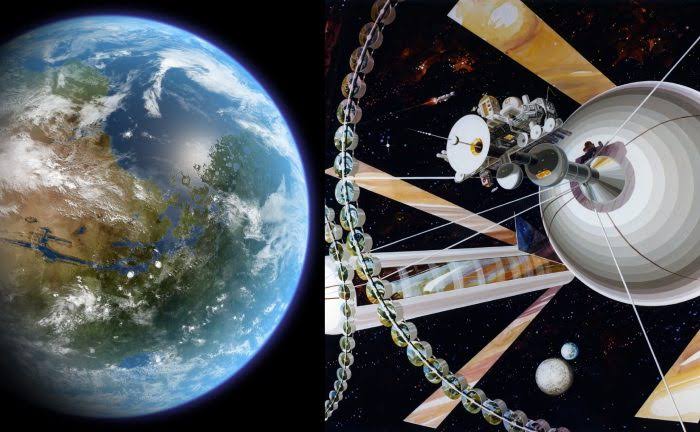As of July 2025, space exploration and human colonization beyond Earth have moved from ideas to real progress. Both public agencies and private companies are working on big goals like building bases on the Moon, sending people to Mars, and creating long-lasting, self-sustaining homes in space. Advances in propulsion, life support, and global teamwork mean the future of space travel is happening now.
From NASA’s Artemis missions and SpaceX’s Mars colonization plans to the growing participation of countries like China, India, and the UAE, the global momentum behind space exploration has never been stronger. As we look ahead, the focus is not only on scientific discovery but also on ensuring humanity’s survival, expanding economic frontiers, and inspiring new generations.
Renewed Interest in Lunar Missions
The Moon has become the renewed gateway to deeper space exploration. NASA’s Artemis program, in collaboration with space agencies from Europe, Japan, and Canada, aims to establish a sustainable presence on the lunar surface. The Artemis III mission, which is expected to land astronauts on the Moon in the near future, marks the beginning of constructing a lunar base camp that could support long-duration missions.
In 2025, several private companies have joined this effort by delivering scientific payloads and equipment to the Moon under NASA’s Commercial Lunar Payload Services (CLPS) program. The Moon is now seen as more than a place for exploration—it is being developed as a launch platform, testing ground, and potential staging area for missions to Mars and beyond. With water ice confirmed in lunar craters, the possibility of extracting life-sustaining resources locally is a key factor in planning long-term habitation.
Mars: Humanity’s Next Giant Leap
Among all celestial bodies in our solar system, Mars remains the most viable candidate for human colonization. With its Earth-like day length, subsurface water, and manageable gravity, the Red Planet continues to attract the attention of scientists, engineers, and visionaries. Elon Musk’s SpaceX is leading the private sector’s effort with its Starship program, which is now conducting high-altitude test flights and developing cargo missions to prepare for human travel to Mars.
In 2025, global collaborations are intensifying, with space agencies sharing data from Mars rovers and orbiters to create detailed maps and environmental profiles of potential landing and settlement sites. Challenges such as radiation exposure, food production, and psychological effects of isolation are being actively studied through Earth-based simulations and space station experiments. While a crewed mission to Mars has not yet occurred, it is now considered likely within the next decade.
Technological Advancements Driving the Future
Technological innovation is at the core of space exploration’s rapid evolution. New developments in propulsion systems—such as ion drives, nuclear thermal propulsion, and reusable rockets—are reducing the cost and time of space travel. SpaceX’s fully reusable Starship rocket, which continues to undergo iterative development, is intended to carry both crew and cargo on long-distance missions, making interplanetary travel more feasible.
Artificial intelligence and robotics are playing a growing role in unmanned missions and in preparing environments for human arrival. AI is used for navigation, fault detection, and autonomous decision-making, while robots are deployed to build habitats, mine resources, and conduct maintenance. Additionally, 3D printing in space is being explored to manufacture tools, spare parts, and even structures from local materials, reducing the need to transport everything from Earth.
The Rise of Commercial Space Industry
The future of space exploration is no longer driven solely by government agencies. Private companies such as SpaceX, Blue Origin, Rocket Lab, and China’s iSpace are transforming the landscape by offering launch services, satellite deployments, and cargo delivery to space stations and the Moon. These companies are significantly reducing the cost of access to space and opening the market to new participants.
By 2025, the space economy is thriving, with new ventures exploring opportunities in space tourism, asteroid mining, orbital manufacturing, and satellite-based internet services. The rise of spaceports in Canada, the US, Australia, and the UK signals a global shift toward commercialization. The involvement of private capital has accelerated innovation while also raising ethical and regulatory questions about space governance and resource ownership.
International Collaboration and Space Governance
Space exploration has become an increasingly international endeavor. Countries like China and India have made major strides, with China’s Tiangong space station now fully operational and India’s Gaganyaan human spaceflight mission progressing. These efforts are contributing to a more multipolar approach to space, where cooperation and competition coexist.
The Artemis Accords, signed by over 30 countries, are helping to establish principles for peaceful exploration, resource sharing, and transparency. However, as the potential for space colonization grows, so too does the need for clear legal frameworks. Questions surrounding land ownership, environmental protection, and military activity in space remain unresolved. In 2025, the United Nations Committee on the Peaceful Uses of Outer Space (COPUOS) is actively working to update global space law to address these emerging challenges.
Preparing for Human Habitation
The idea of living off-Earth is no longer science fiction. Research into building habitats that can withstand harsh environments, generate oxygen, recycle water, and grow food is advancing quickly. Experiments conducted aboard the International Space Station and Earth-based analog missions like the HI-SEAS and Mars DOME projects are helping scientists understand what humans will need to survive and thrive on other planets.
Radiation shielding, artificial gravity, mental health, and energy production remain top priorities. In 2025, modular inflatable habitats, bioreactors, and regenerative life support systems are being tested for viability. The integration of Earth-based systems like vertical farming and closed-loop recycling will be essential for maintaining life on the Moon, Mars, or any other distant world.
Ethical and Environmental Considerations
As we expand into space, ethical questions about our responsibilities toward celestial bodies, potential life forms, and the preservation of extraterrestrial environments are gaining importance. Space colonization raises concerns about repeating colonial patterns, displacing other forms of life, or exploiting resources without consideration for long-term sustainability.
Environmentalists and scientists are urging governments and private companies to adopt principles of planetary protection. These include preventing biological contamination, minimizing orbital debris, and promoting transparency in mission objectives. In 2025, organizations such as the Planetary Society and the International Institute of Space Law are leading efforts to create frameworks that prioritize responsible exploration.
Final Thoughts
The future of space exploration and colonization is unfolding rapidly, driven by a combination of scientific ambition, technological breakthroughs, and commercial investment. As of July 2025, we are witnessing the early stages of humanity’s bold expansion into the cosmos—from establishing lunar bases and planning Mars missions to building technologies that could one day support life beyond Earth.
Yet, the journey ahead is complex and requires global cooperation, ethical foresight, and a shared vision for a future that benefits all of humanity. Space exploration offers not only the promise of discovery but also the opportunity to rethink how we live, innovate, and coexist. As we look to the stars, our greatest challenge may not be getting there—but doing it right.



